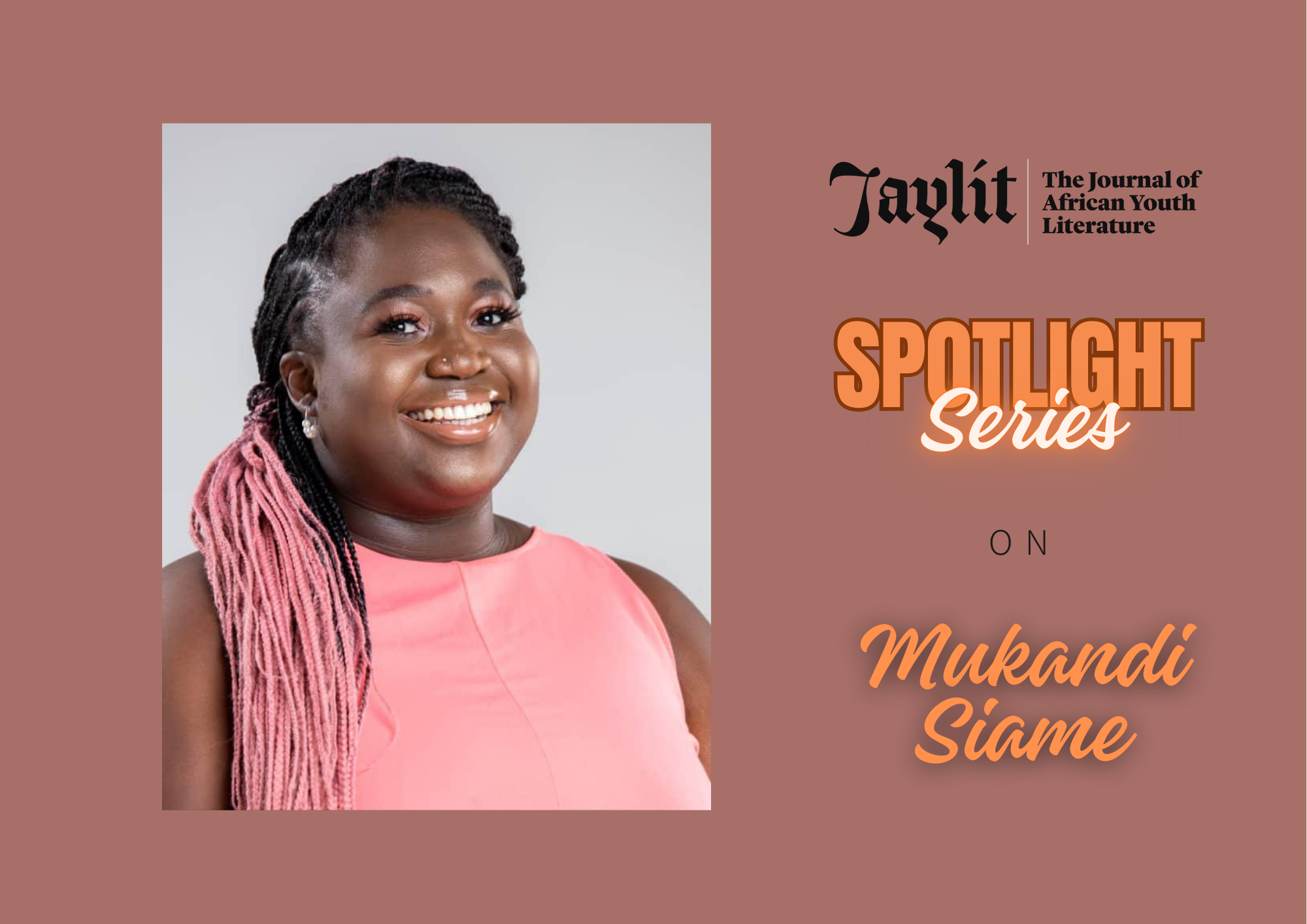Mukandi’s Writing Journey
Why writing?
Mukandi usually says she doesn’t know why, as a placeholder answer to conform. Being an artist is rational when society considers you too strange to be anything else, but she presents as normal, and typical. She could have been anything – a lawyer, accountant, therapist, development scientist, or teacher. She could have been on marriage one, baby number three, and loan number five to build a three-bedroom house in Chalala. Like most people, she craves stability and certainty so she wishes a career in writing could provide it.
But writing happened to her too early, and she loved it. She is competent at many other things, but she likes writing the most. She has worked as a copywriter in different capacities in advertising for the last six years, and has built the skill and instincts for it. She’d do it even if she were bad. Writing is the only thing she can do tired, the only thing that inspires her when done right and irritates her when done wrong. She looks for it in lyrics, conversations, packaging, and hymns.
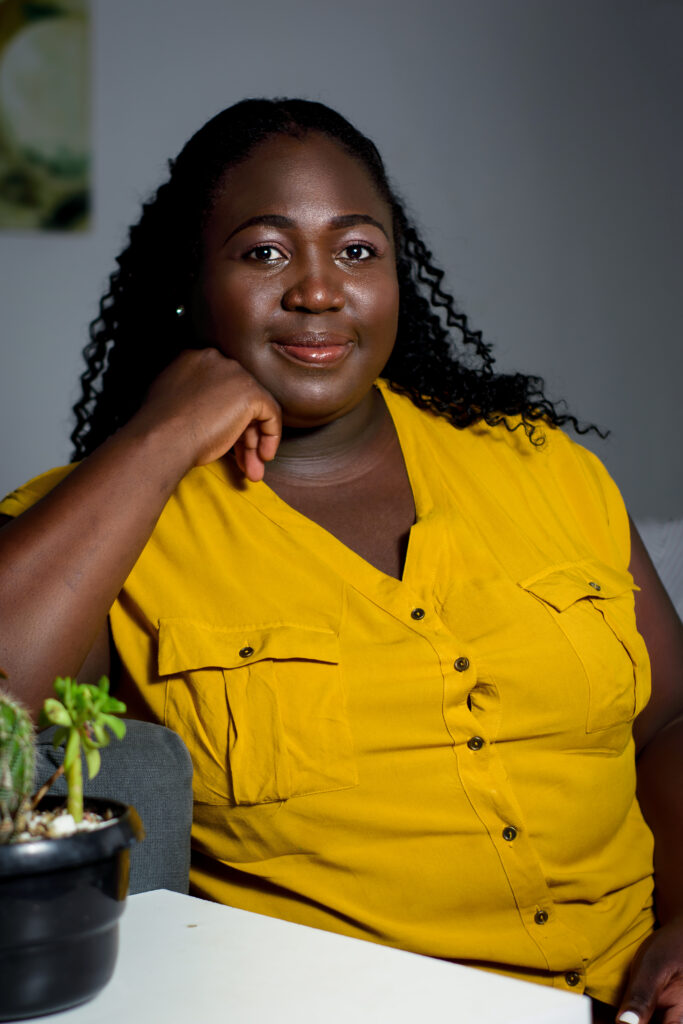
Mukandi feels like she is searching for something, and writing is the only way to find it. Sometimes she feels like she is searching for validation from people who don’t take writing seriously as an art form or a career. Sometimes she searches for answers that only come when she begins a paragraph. Sometimes she is searching for herself and the truths she stumbles upon when she dares. Sometimes she is demanding accountability, recollection, response, and contention. There are many reasons to write, and she loves them all.
In an interview for Ubwali, she talked about secrets. There is, however, a tension there. They say there is nothing new under the sun, which means there are no new stories or new secrets. Ultimately, every story has a set ending, but the mastery is in how we arrive at it. Writing is the art of revelation. Mukandi loves a good sentence because of how it unveils the secret. Good writing can be hard, but she has romanticized this tough thing that she loves.
Mukandi started writing as soon as she could. She imagined worlds and brought her siblings into them with her fantasy stories. She would often make them promise to care for her if she ever went mad, and they did because they knew it was a possibility. She made up elaborate stories about living in Edinburgh, a place she picked out of an atlas. She vocalized their dog’s thoughts. Her doll, Rose, drove to work in her father’s shoe, which her siblings imagined as a black Porsche. She even cut up a sleeve from her t-shirt to make Rose a bodycon dress for after-work drinks. Now, she realizes that all of that was writing.
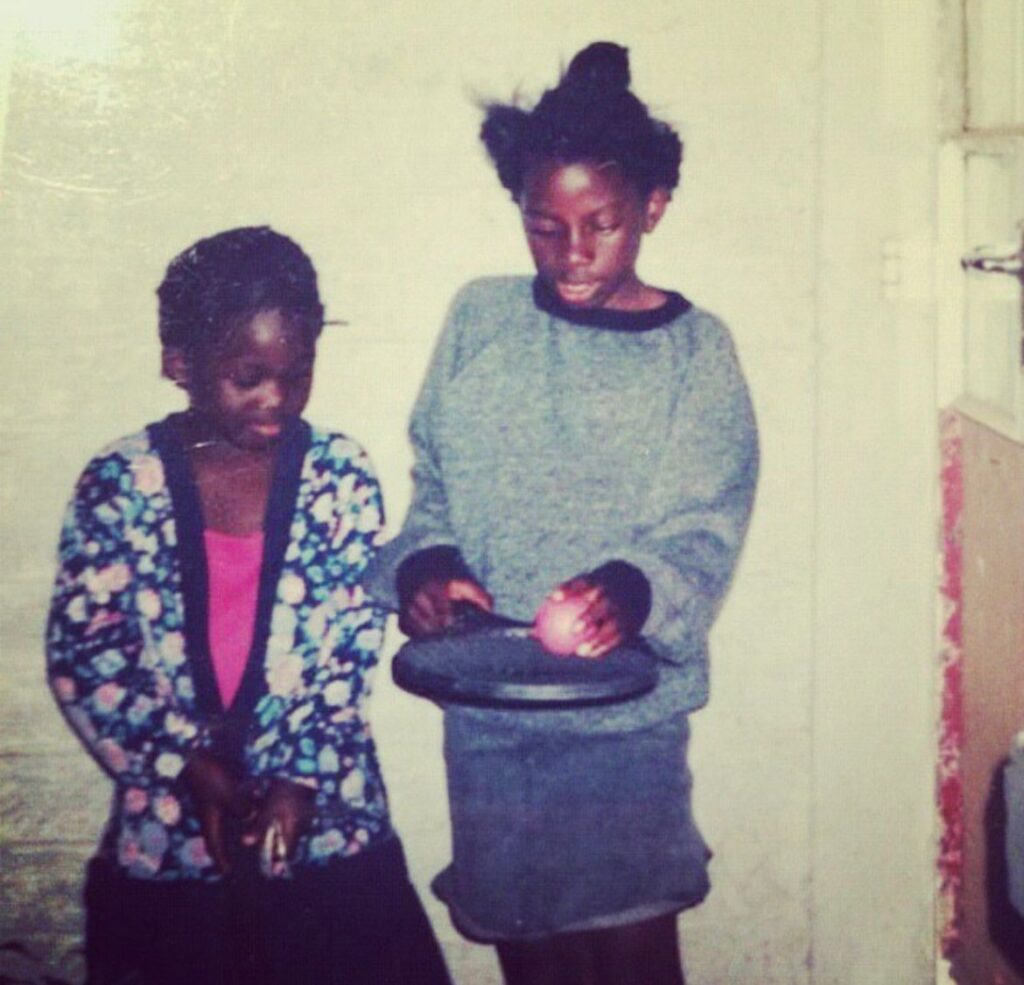
The true beginning was in high school. Mukandi did the same thing for her friends, writing stories on pages torn out of her mathematics notebook. After high school, writing seemed childish, but then Facebook Notes and Blogspot happened. Muliya Muliya set her up, kicked her onto the internet, and turned strangers into readers of a platform called Kandi’s Notes. She wrote most of it free form, but there was a skill there and a warm community of forgiving readers.
It was good enough to get her recognized by some local magazines that needed writers, but raw enough to get her fired. She met many people who are now dear to her during those days. In 2015, she came third in the Zambian Women Writers Association Awards for her short story “Landing on Clouds” – number three in all of Zambia! She went alone to the prize-giving ceremony in a skirt that was a little short. She shook the Chinese Ambassador’s hand; his wife was shocked that she was younger than imagined. Mukandi’s idol, Maliya Myzeche, was there. Maliya had been the only older person concerned enough to give her feedback when she was in high school, and she didn’t even remember her. At the ceremony, Maliya said Mukandi’s story was clean and masterful. “Landing On Clouds” was about AIDS, so “clean” was a compliment.
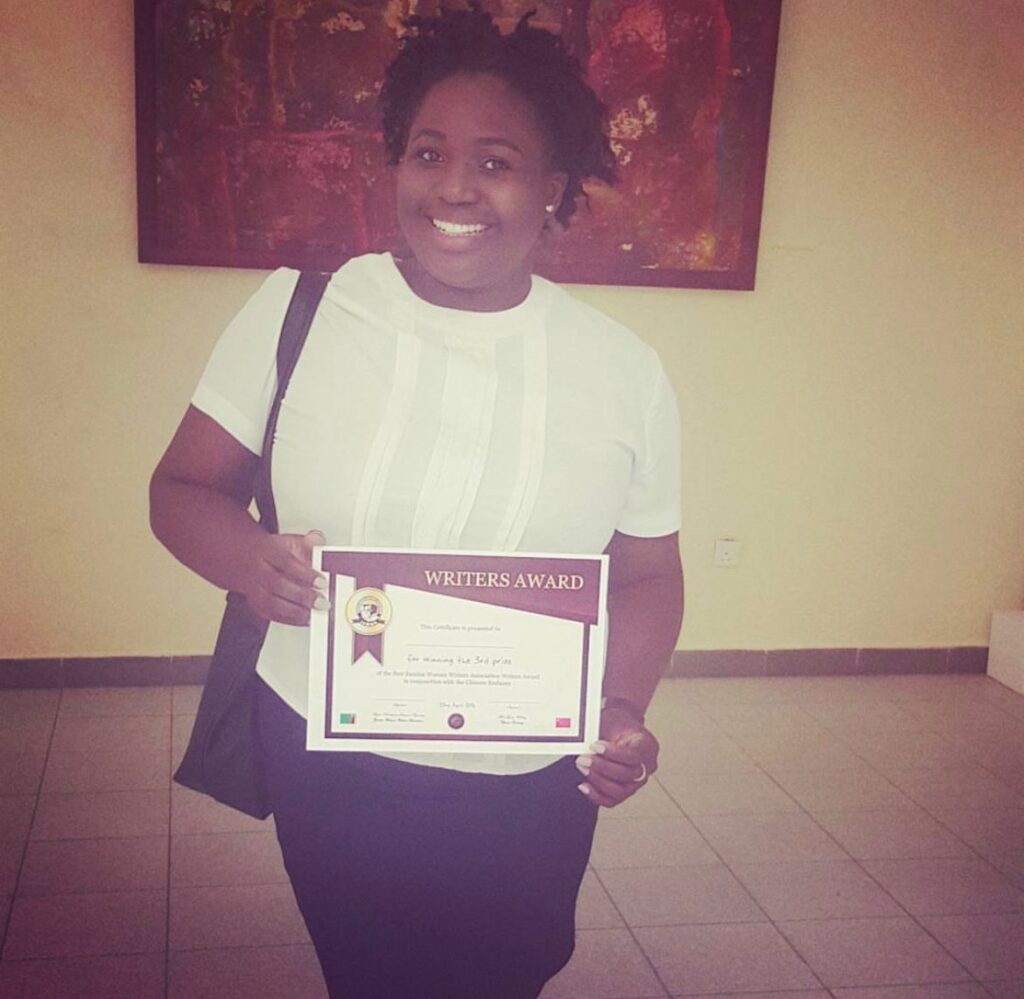
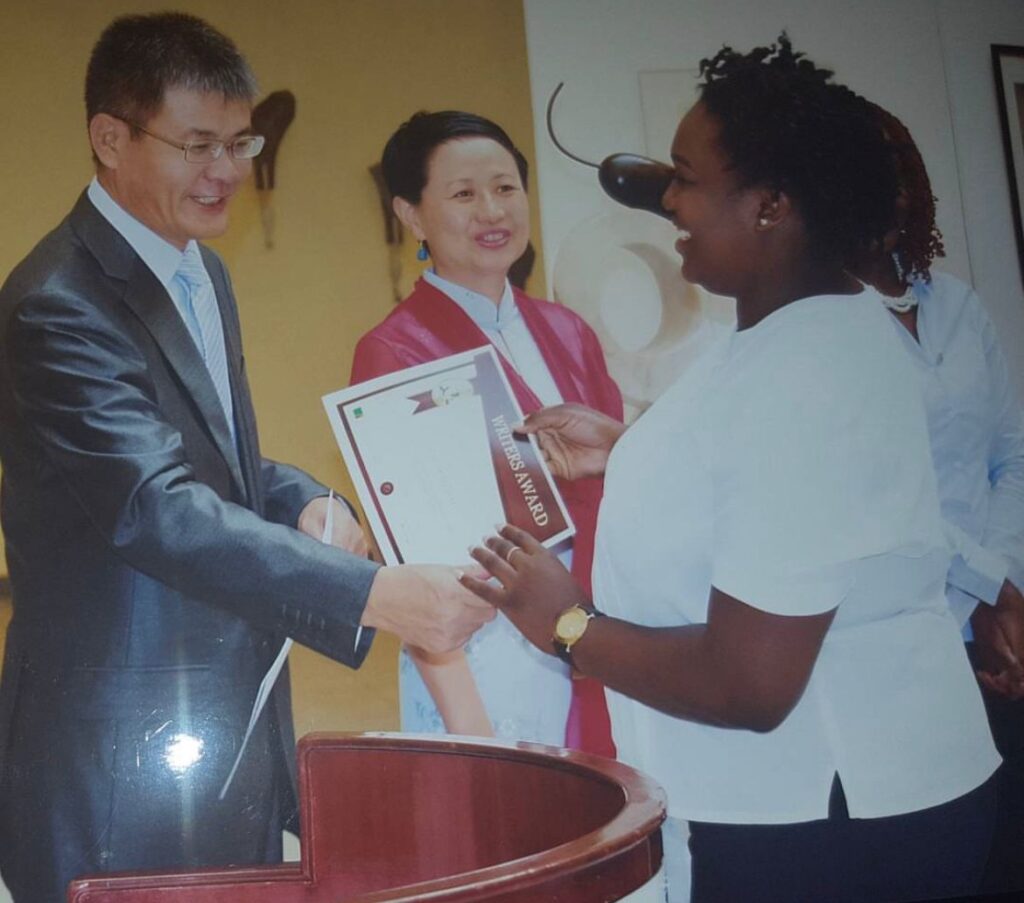
What’s the goal?
To finally be honest. But what does honesty mean for an African writer, a black woman in Zambia facing turbulent personal and social dynamics?
Mukandi felt honoured by her Hope Prize win because it validated her honesty. Her essay “Like Mother” has been described as brave because it is honest. Honesty takes many forms – it’s more than not lying, it is about pursuing the whole truth, which can be comedic or harmful when mishandled by its sharp edges. There are endless truths about love, poverty, wealth, money, success, parenting, pleasure, and all the facets of living. She wants to be vulnerable enough to be okay with chasing them even if she might not find the whole truth.
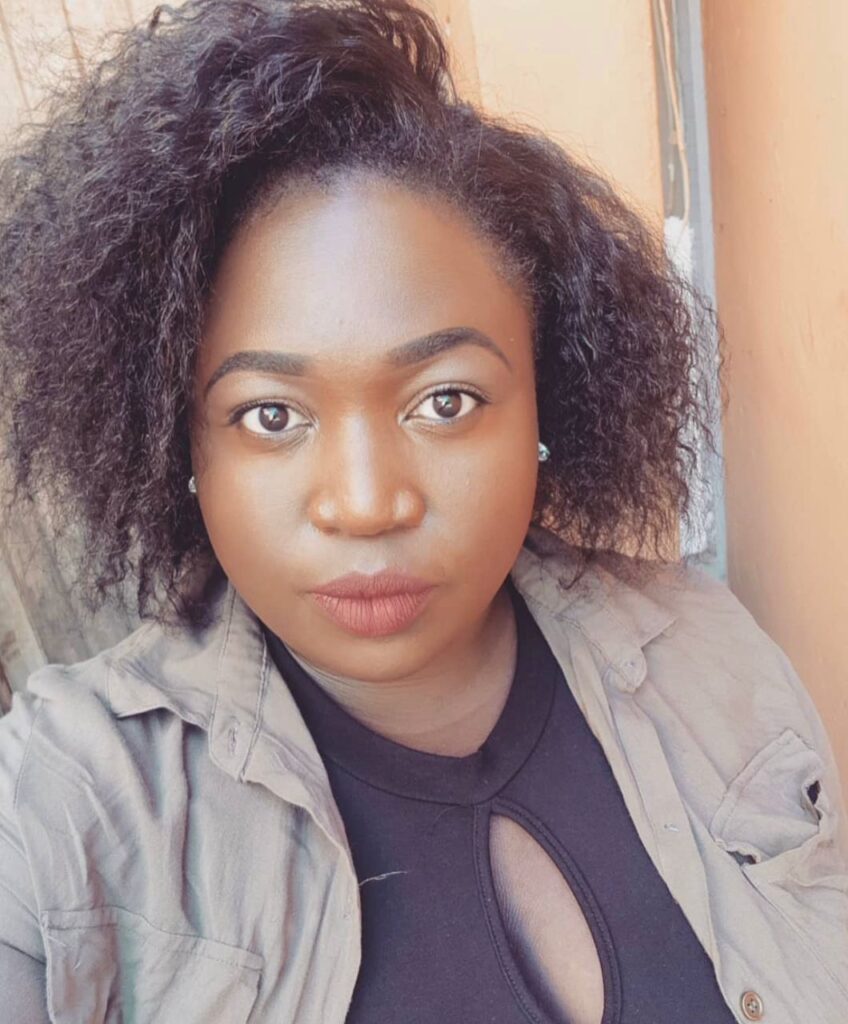
In the end, Mukandi just wants to be honest. She hopes that honesty is a gift she can give herself. The older we get, the more complex our lives become, and the harder and more precious honesty is. When people find themselves reflected in her writing, she feels like they are seizing the truth together – especially because all she has is her subjective reality.
How do you tell the story of a madman strolling the streets speaking to the people in his head? Mukandi thinks the honest story is that he is a man who is committed to honesty. We practice dishonesty every time we bathe, dress up, comb our hair, say pleasantries, and nod politely. To her, the people we call mad are those who commit to absolute honesty, and that’s the sort of freedom she craves.
This is why she is not selective when she writes. There are rules like no sex, politics, or religion – but in her lived experience, that isn’t always honest. Penis enlargement, Member of Parliament, and Miracle Service posters all share the same space on the street poles – these are the lives we live. Everything is a part of the truth – even in fiction.
Is it worth it?
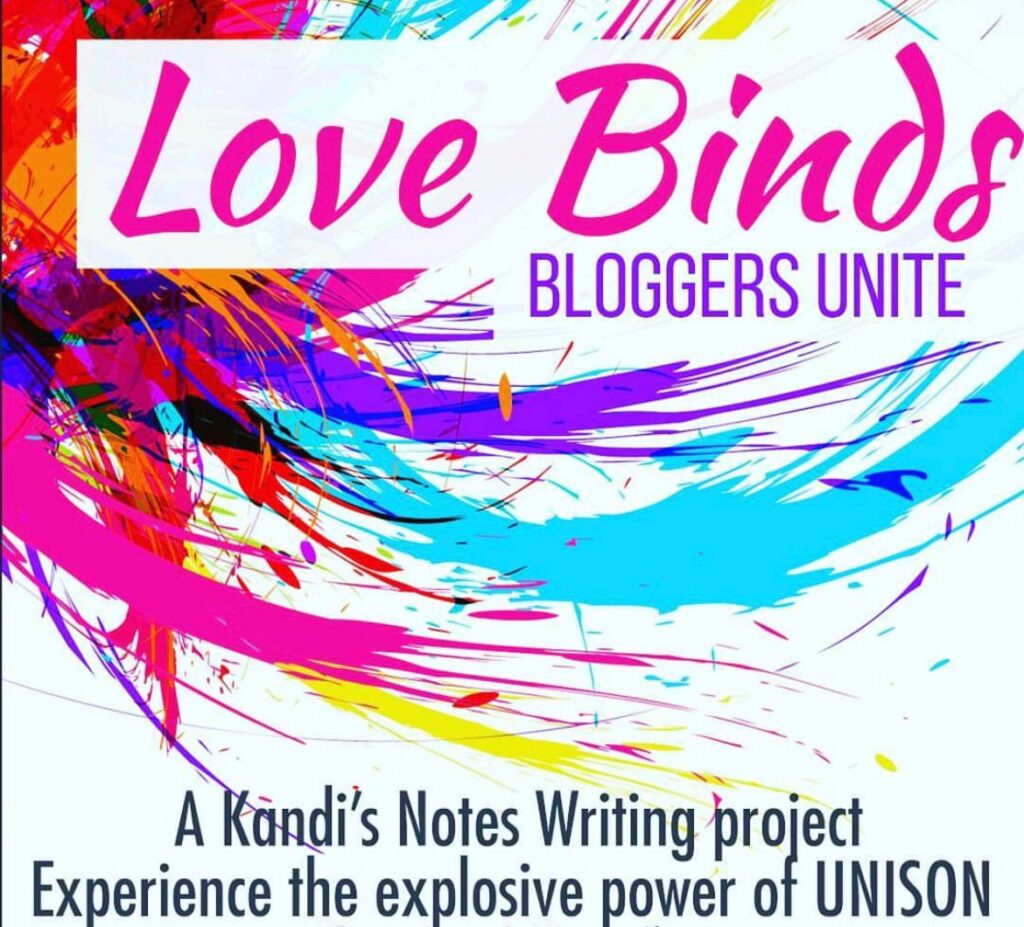
Back in the Kandi’s Notes days, Mukandi ran a project called Love Binds – 26 people wrote one story, adding to the plot and passing it on. She had no idea how it would start or end. She loved it. Everyone is a writer; she believes that in the way they say everyone is a singer. She edited and guided the narrative until they ended up with the most beautiful harmony, an afro sci-fi romance with hip-hop undertones. Her contribution was short, about 300 words where she described a close friendship as one that never skipped a beat. She smiles every time she sees people use the turn of phrase. She worked with people, and together they added something to the world. Small things like that make it worth it.
In the grand scale, the people she meets, and the truth she discovers all change her in a very intimate way that makes it all worth it. When the Kalemba Short Story Prize 2023 and The Ubwali Hope Prize came along, they found her already bowed in gratitude at how beautiful a writer’s journey can be.Believing that humans are inherently bad and good, Mukandi feels blessed to bask in the good. Mukandi does not call herself a self-made writer. She owes her progress to the respect of the readers who give their attention; mentors and fellow writers who nudge her along the way and her family who are okay with letting her run mad. Many good people have invested their time, money, energy, and life force into the writer she has become. She hopes it’s worth it.
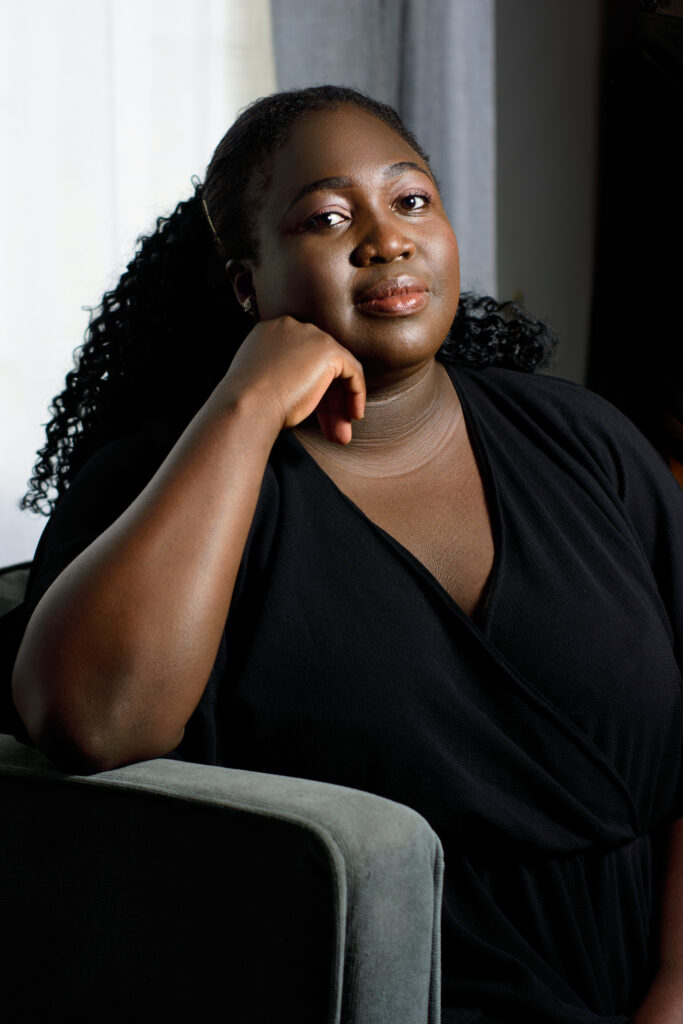
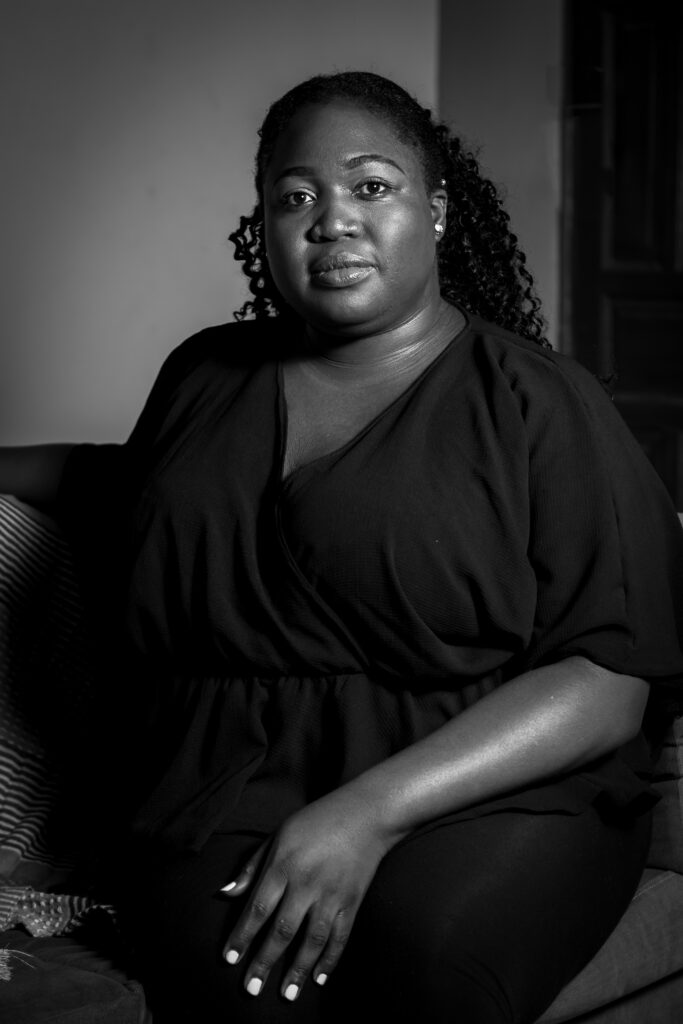
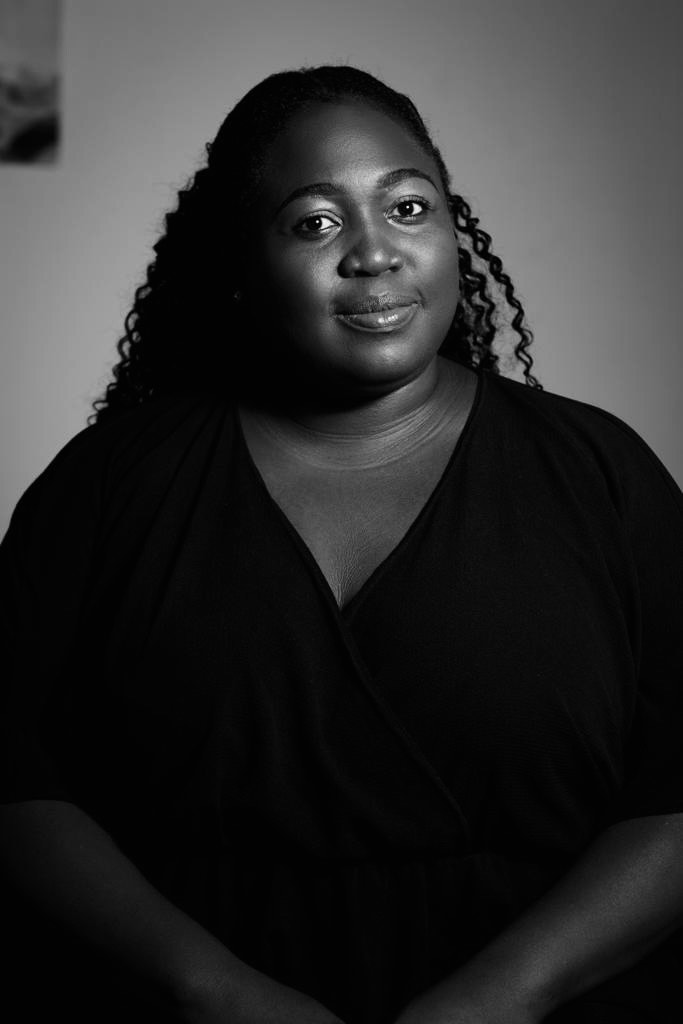
Tobi Ojenike
Tobi Ojenike is a freelance writer from Lagos, Nigeria. She enjoys long walks, strawberry milkshakes, and reading Danielle Steele and Chimamanda Ngozi Adichie, whom she hopes to meet someday. She is currently working on republishing her maiden book, On Edge. Tobi is available on X and Instagram at the handle @tobiojenike. Tobi‘s website is: http://www.tobiojenike.com.


